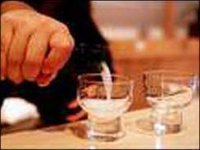Russians get ready for another law against alcohol
Russia can be left without its traditional alcohol beverages after July 1st. It goes about such drinks as mead, sbiten, cider and some others. The producers and importers of these products do not execute the regulations about mandatory licensing, which obliges them to make containers for alcohol and non-alcohol products separately, Interfax reports.

During the summer period of the year, which is a period of increased demand on drinks, companies produce kvas (bread drink) and other non-alcohol products. During the winter time, when the demand on such drinks decreases, they make mead, sbiten and cider in the same bottles and cans.
In the spring of 2012, a group of State Duma deputies introduced an amendment to the law to exclude natural drinks from licensing norms. However, Russia's Agency for Alcohol Regulation prepared a negative comment for the bill.
"We will not be able to afford the licensing. Many employees of our company are already in the process of seeking new jobs, because we will have to halt the production," Vsevolod Datsevich, the general director of an alcohol-making company said. According to him, the license costs 12 million rubles. "This is comparable to the amount that we invested in the development of gardening and in the creation of our own base of raw materials," he added.
The members of the Association of the Producers of Natural Drinks have already sent a letter to Prime Minister Dmitry Medvedev. In the letter, they asked Medvedev to include traditional Russian drinks on the list of products left beyond the scope of the Federal Law 171.
In 2011, there were 6.5 million liters of cider and mead produced in Russia vs. 5.5 million liters in 2010. Natural drinks are presumably produced by medium-sized companies in cultural centers of Russia, such as Suzdal, Sergeyev Posad, Kolomna and others.
In the meantime, the authorities of Russia's Tomsk region submitted another "alcoholic bill" to the State Duma. The bill stipulates an expansion of alcohol-free territories in the country. Drinking beer on stairways or on the beach would be prohibited. The fine for breaking the law would be set on the level of 500-700 rubles ($20-30). If caught with a bottle again, the fine would be increased to 1,500 rubles ($50).
The bill equals strong and weak alcohol drinks. The list of alcohol-free territories includes yards, stairways, elevators and playgrounds. Alcohol will be banned in parks, gardens, and other places where people traditionally like to spend their free time.
It is worthy of note that 27 years ago, in May of 1985, the Central Committee of the Communist Party approved the renowned decree about the measures to overcome alcoholism. The decree, as many experts say, accelerated the decline of the Soviet empire.
Unlike Mikhail Gorbachev, who introduced the dry law and earned the reputation of a national enemy, Russia's first President Boris Yeltsin knew the worth of vodka. One of the first decrees of the Russian government allowed the private production of alcohol. Russia took a deep breath, drank and rejoiced.
In tsarist Russia, they introduced the dry law during the beginning of WWI. Two revolutions rocked the country several years later. Some experts say that the revolutions were primarily based on those "alcoholic" restrictions.
Subscribe to Pravda.Ru Telegram channel, Facebook, RSS!





